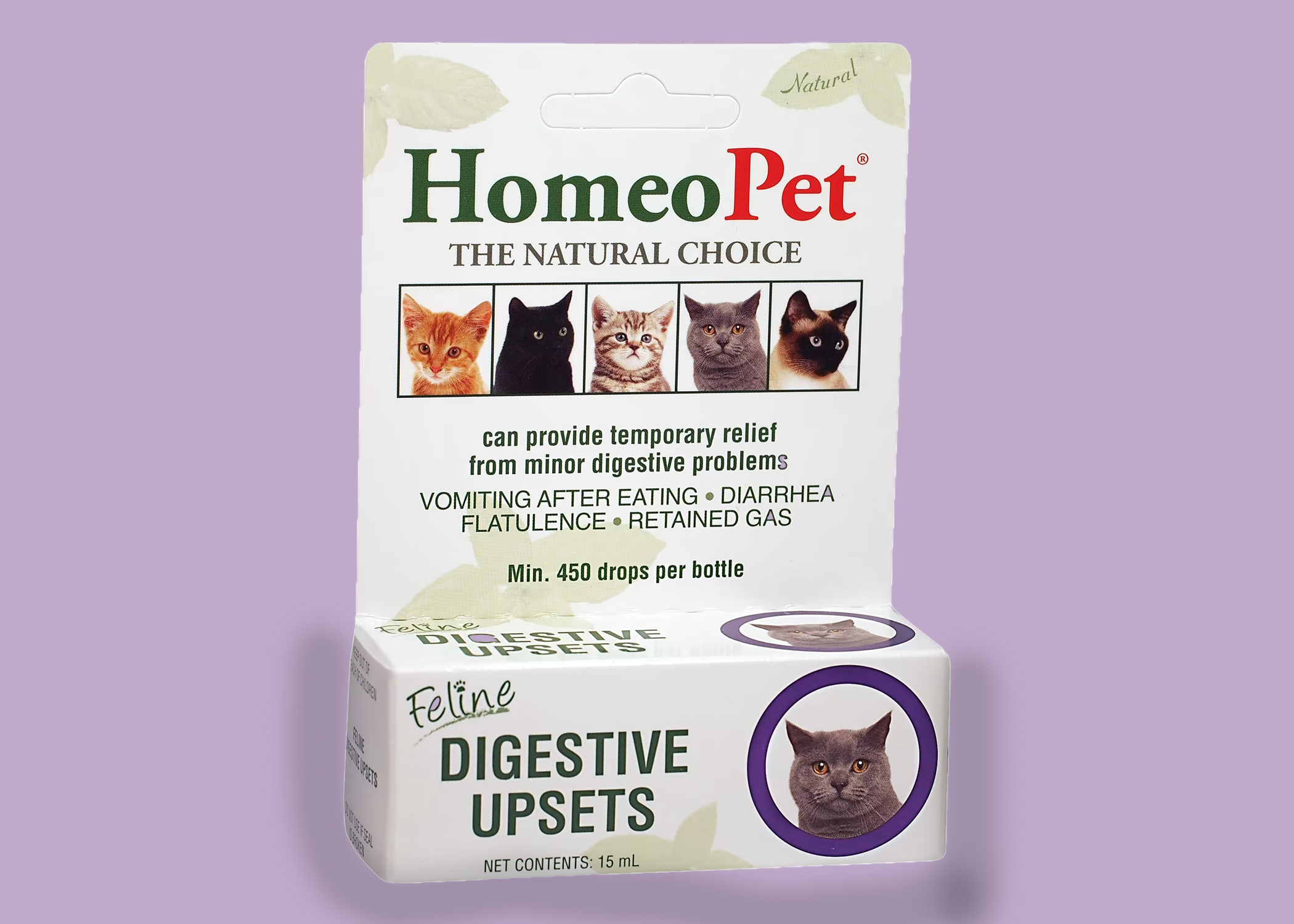Sick Day Secrets: A Deep Dive into Dog Diarrhea and Vomiting Survival Strategies
The health and happiness of their animal companion is the first concern for all pet owners. Dog Diarrhea and Vomiting, however, may be a major source of worry and mess when it comes to our furry friends. Despite being prevalent, these two symptoms can indicate a variety of underlying causes, leaving pet owners puzzled and eager to assist in their beloved dogs’ recovery.
In this investigation into “dog diarrhea and vomiting,” we’ll set out to solve the secrets behind these digestive disorders. Our goal is to help pet owners navigate the complex world of upset tummies in dogs by offering clarity and useful insights on anything from minor symptoms to possible triggers.
We will delve into the nuances of digestive problems in dogs in this enlightening guide, including typical causes, distinguishable symptoms, and doable home remedies. The subtleties of your pet’s digestive system are important to know, whether you’re an experienced pet parent or a new dog owner, as they affect their general health.

The significance of quickly recognizing and treating these symptoms
It’s important to recognize and treat Dog Diarrhea and Vomiting right away for a number of reasons. First of all, these symptoms could point to a transient disruption in the digestive system brought on by dietary errors, stress, or environmental changes. Prompt action can assist in resolving these problems before they get worse.
These symptoms, however, may also be a sign of more significant medical issues, such as infections, gastrointestinal problems, or hazardous drug consumption. For the purpose of correctly diagnosing the underlying cause and starting the proper treatment, prompt veterinary care is imperative.
Persistent vomiting and diarrhea can also result in weight loss, electrolyte imbalances, and dehydration, which puts your dog’s health at further risk. Understanding the significance of these symptoms and acting upon them will help your dog heal more quickly and enjoy better general health.
Reasons for Dog Diarrhea and Vomiting
It can be upsetting and distressing to watch our beloved pets go through episodes of Dog Diarrhea and Vomiting. Due to their natural curiosity, dogs’ sensitive digestive systems might become unsettled by a variety of causes. Let’s examine the complexities of these cases and the various causes of these prevalent dog illnesses.
1. Dietary Delights and Indiscretions:
Due to their curiosity, Dog Diarrhea and Vomiting may unintentionally eat foods that will upset their stomachs. Eating rotten food or reaching into the trash can are examples of dietary transgressions that can cause discomfort and result in diarrhea and vomiting. These culinary mishaps might be avoided by keeping a close check on their surroundings.
2. Dietary Dilemmas and Abrupt Changes:
Due to their curiosity, dogs may unintentionally eat foods that will upset their stomachs. Eating rotten food or reaching into the trash can are examples of dietary transgressions that can cause discomfort and result in diarrhea and vomiting. These culinary mishaps might be avoided by keeping a close check on their surroundings.
3. Intrusive Intruders: Infections:
Dog gastrointestinal tract infections can cause severe complications, encompassing bacterial, viral, and parasitic infections. Reportedly harmful viral infections like parvovirus, bacterial strains like salmonella, or worms can cause symptoms like nausea, vomiting, diarrhea, and loss of appetite. A dog’s defenses can be strengthened by routine veterinary examinations and preventative actions.
4. Allergies and Sensitivities:
Dogs are susceptible to allergies or dietary sensitivities, just like people are. Typical allergies include cereals, dairy products, chicken, and beef. These triggers can cause unsettled stomachs, which can lead to vomiting and diarrhea. Digestion harmony can be restored by locating and removing the offending party.
5. Inflammatory Bowel Disease (IBD):
The complicated cause
A chronic illness called inflammatory bowel disease arises when the immune system unintentionally attacks the digestive tract. Dog Diarrhea and Vomiting with inflammatory bowel disease (IBD) may lose weight and have decreased appetite in addition to frequent episodes of vomiting and diarrhea. A customized treatment strategy and an accurate diagnosis depend on veterinary consulting.
Pet owners are essential to the health of their canine companions because they encourage steady, high-quality food, keep an eye out for potential triggers, and seek professional assistance when necessary. By being aware of the complex reasons behind Dog Diarrhea and Vomiting, we can take proactive measures to maintain the health of our animal companions and make sure they lead the happiest, healthiest lives possible.
Dog Vomiting and Diarrhea Signs and Symptoms
Dogs can get episodes of Dog Diarrhea and Vomiting, much like people do. While sporadic occurrences could be typical, severe or chronic symptoms might point to underlying medical conditions. Ensuring the health and welfare of your pet requires that you recognize the warning signals and comprehend the possible reasons.
Dog Vomiting Symptoms:
Frequency: Monitor how frequently your dog throws up. Vomiting repeatedly in a short period of time could be an indication of trouble.
Consistency: Take note of the vomit’s consistency. It can range from partially digested food to bile-like or frothy material.
Blood: Whether the blood is new or looks like coffee grounds, the presence of blood in vomit is a warning indicator that needs to be seen by a veterinarian very soon.
Lethargy: After vomiting, if your dog seems weak, listless, or uninterested in normal activities, there may be an underlying issue.
Dog diarrhea Symptoms:
Consistency: Normal stool consistency is firm. diarrhea may be the cause of your dog’s abnormally loose or watery stools.
Color: Variations in the color of the stool, such as the presence of blood or strange tints, may be a sign of digestive problems.
Frequency: Urgent, frequent bowel motions, particularly when they are coupled with straining, may indicate diarrhea.
Dehydration: Loss of fluids due to diarrhea may occur. Look out for symptoms including sunken eyes, receding gums, or generalized lethargic behavior.
Common Reasons:
Dietary Mistake: Dog Diarrhea and Vomiting may consume objects that aren’t food, which could irritate their stomachs. Keep an eye on their access to strange meals and items.
diseases: Digestive problems may be caused by bacterial, viral, or parasitic diseases. Vaccinations and routine deworming are important preventive strategies.
Allergies: Food sensitivities can cause diarrhea and vomiting. The key is recognizing and avoiding allergies.
Foreign Objects: Eating non-food objects like bones or toys can clog the digestive system and cause diarrhea and vomiting.
When to Get Veterinarian Attention:
See a veterinarian right away if signs like blood, dehydration, or lethargy appear, or if vomiting and diarrhea last longer than 24 hours. It is imperative to seek a prompt expert examination in order to address any potential underlying health issues.
For the sake of your dog’s general health, you must pay close attention to their digestive system. While a minor upset stomach may go away on its own, more serious or chronic symptoms call for veterinarian care. Preventive treatment, a balanced diet, and routine observation all help to keep your dog happy and healthy overall.

Get Your HomeoPet Feline Digestive Upsets Today!
Ensure your cat’s well-being with HomeoPet Feline Digestive Upsets. Don’t let digestive issues affect their happiness. Order now to provide the relief your feline companion deserves. Click the link here to make your purchase and give your cat the care they need.
Treatments for Dog Vomiting and Diarrhea at Home
Dog Diarrhea and Vomiting are a regular concern for their owners. Mild episodes are frequently effectively treated at home, but severe ones necessitate rapid veterinary assistance. Your dog’s rehabilitation might be aided by being aware of the causes and providing the right care. This is a thorough approach to treating dog vomiting and diarrhea at home.
1. Monitor and assess:
It’s important to keep an eye on your dog’s symptoms before starting any at-home treatments. Keep an eye out for any behavioral changes, the frequency and consistency of vomiting and diarrhea, and the appearance of blood. When you talk to your veterinarian about the situation, this information will be helpful.
2. Hydration:
Staying well hydrated is essential to avoiding dehydration, particularly when experiencing diarrhea or vomiting. Make sure your dog always has access to fresh, clean water. Offer your dog ice cubes or ice chips as an alternative if they won’t drink.
3. Bland Diet:
If your dog is having gastrointestinal distress, a bland diet may assist. Serve lean ground turkey or boiled chicken over simple, cooked rice. This gives the body readily-absorbed nutrients without putting undue strain on the digestive system. Refrain from adding oils or seasoning.
4. Small, frequently spaced meals:
Split up your dog’s daily dietary allotment into smaller, spaced-out meals. This lessens the burden on the gastrointestinal system and facilitates digestion. Keep an eye on how your dog reacts to the altered food schedule.
5. Probiotics:
Including probiotics in your dog’s meal helps encourage a balanced population of good bacteria in his stomach. Dog-specific probiotic supplements are available and can help heal the digestive system.
6. Pumpkin or Sweet Potato:
You can add cooked sweet potatoes or simple, canned pumpkin to your dog’s diet. These components can assist digestive health by adding extra fiber and firming up stools.
7. Fasting Period:
To help the stomach settle after vomiting, you may want to consider not feeding your dog for 12 to 24 hours. Make sure there is access to water during this time of fasting. After that, gradually resume a plain diet.
8. Watch for Improvement:
Pay special attention to your dog’s general behavior and any symptoms. Consult a veterinarian right away if the problem doesn’t improve or if it gets worse. The right treatment and identification of the underlying problem require expert advice.
9. Restrict Your Dog’s Access to Foreign Objects:
Keep your dog away from anything that might be uncomfortable in his stomach. Garbage cans should be kept locked, and home objects that might be consumed should be avoided.
10. Rest and Comfort:
Give your dog a peaceful, cozy area to unwind in while they heal. Reduce your stress level and steer clear of demanding activities while you’re healing.
11. Review of Medical History:
Take into account any recent dietary, environmental, or exposure to possible toxin changes for your dog. To help with a more precise diagnosis, let your veterinarian know about any allergies or sensitivities you may have.
While mild occurrences of Dog Diarrhea and Vomiting can be managed at home, more serious illnesses require the guidance of a veterinarian. Your pet’s health and happiness come first, and prompt treatment guarantees a full recovery and a happy, healthy return. The long-term health and happiness of your dog are influenced by routine examinations and proactive care.
Preventive Measures for Dog Diarrhea and Vomiting
Keeping dogs from throwing up and having diarrhea is an important part of good pet ownership. Although occasional unsettled stomachs are frequent, the likelihood of these problems can be greatly decreased by taking preventative actions. We’ll look at doable preventative steps in this post to keep your dog happy and healthy.
1. Balanced and High-Quality Diet:
The foundation of your dog’s general health is a diet that is both nutritionally adequate and well-balanced. Select a premium dog food that satisfies their unique needs in terms of size, age, and breed. Steer clear of abrupt dietary changes since these may cause unsettled stomachs. See your veterinarian for individualized dietary recommendations.
2. Steer clear of table scraps:
Dogs may be harmed by many human meals, despite the allure of sharing leftovers. Some components are hazardous, such as chocolate, garlic, onions, and caffeine. Don’t give your dog leftovers from the table, and stress this rule to your family and visitors.
3. Gradual Diet Transitions:
If you must give your dog a different diet, do so over the course of a few days. Digestionary problems might result from sudden alterations. To give your dog’s digestive system time to adjust, gradually increase the amount of new food added to the old food while mixing the two.
4. Hydration:
Staying properly hydrated is essential to avoiding a number of health concerns, such as digestive disorders. Make sure your dog has access to fresh, clean water at all times. Keep an eye on your water consumption to avoid dehydration on hot days or when you’re exercising more.
5. Frequent Exercise:
Frequent exercise helps to support healthy digestion in addition to helping one maintain a healthy weight. Exercise encourages bowel motions and guards against diarrhea or constipation. Adapt the exercise regimen to the age, breed, and general health of your dog.
6. Parasite Prevention:
Two crucial facets of preventive medicine are routine deworming and flea control. Your dog’s digestive tract may be severely disrupted by parasites, resulting in vomiting and diarrhea. For a personalized parasite prevention strategy, speak with your veterinarian.
7. Vaccination Schedule:
Make sure your dog has all of its scheduled immunizations. Immunizations offer vital protection against certain viral illnesses that might cause gastrointestinal pain. To ensure your dog remains immune against avoidable illnesses, adhere to the immunization schedule prescribed by your veterinarian.
8. Stress Management:
Just like people, dogs can suffer from stress, which can lead to stomach problems. To lower stress levels, stick to a regular schedule, create a cozy space, and engage in interactive play with toys that stimulate the mind.
9. Frequent Veterinary Exams:
Frequent veterinary examinations are crucial for identifying possible health problems early on. Your dog’s veterinarian can identify any developing health issues before they worsen and offer preventive care recommendations based on your dog’s individual needs.
10. Appropriate Waste Disposal:
Make sure your dog isn’t around any potential danger sources, such as trash. Gastrointestinal issues may arise from consuming damaged food or non-food objects.
It is possible to considerably lower your dog’s risk of Dog Diarrhea and Vomiting by including these preventive actions in your regular care regimen. A pleasant and healthy lifestyle, together with frequent veterinarian check-ups, are essential for a canine friend. Recall that the secret to giving your cherished pet a long and happy life is early prevention.
Conclusion
A comprehensive strategy is necessary to comprehend and manage Dog Diarrhea and Vomiting. Even though mild cases are frequently manageable at home, it’s important to know when your pet needs professional veterinary care. You can safeguard the digestive health and wellbeing of your pet by being proactive and knowledgeable.
FAQS (Frequently Asked Questions)
What should I do if my dog has diarrhea and vomiting?
If your dog has diarrhea and vomiting, monitor for signs of dehydration, offer small amounts of water, and consult a vet if symptoms persist for more than 24 hours.
How long should I wait to take my dog to the vet for vomiting and diarrhea?
Don’t wait more than 24 hours; seek veterinary advice promptly if your dog is experiencing persistent vomiting and diarrhea.
What does parvo puke look like?
Parvo puke and poop are typically characterized by a foul odor, often yellow or greenish in color, and may contain blood.
Should I give my dog water after vomiting and diarrhea?
Yes, provide water in small amounts to prevent dehydration after vomiting and diarrhea in dogs.
Can I give my dog anything for an upset stomach and diarrhea?
Consult your vet before giving any medications; bland diet, boiled chicken and rice, or prescribed medications may be recommended for an upset stomach and diarrhea.
What human medicine can I give my dog for vomiting and diarrhea?
Do not give human medicine without vet approval; specific canine medications are available for vomiting and diarrhea.
What does parvo poop look like?
Parvo poop is often foul-smelling, with a distinct yellow or green color, and may contain blood.
Should I worry if my dog has diarrhea and vomiting?
Worry if diarrhea and vomiting persist for more than 24 hours; consult your vet for proper diagnosis and treatment.
What do vets give dogs for diarrhea?
Vets may prescribe medications like metronidazole or recommend a special diet to address diarrhea in dogs.
Can I give my dog Pepto-Bismol for diarrhea and vomiting?
Consult your vet before giving Pepto-Bismol; they can advise on appropriate treatments for your dog’s specific condition.
What is the fastest way to cure diarrhea in dogs?
Consult your vet for the fastest and safest way to cure diarrhea in dogs based on the underlying cause.
What if my dog has diarrhea for 3 days but acting normal?
If your dog has diarrhea for 3 days but acts normal, consult your vet for proper evaluation and advice.
Is scrambled egg good for dogs with diarrhea?
Scrambled eggs can be a gentle option for dogs with diarrhea, but consult your vet for personalized dietary recommendations.
What’s the first signs of parvo in a dog?
Early signs of parvo in a dog include lethargy, loss of appetite, vomiting, and diarrhea.
What color is pancreatitis poop in dogs?
Pancreatitis poop in dogs may be light-colored, greasy, and have a strong, unpleasant odor.
How do you clean a dog’s diarrhea without gagging?
Use pet-safe cleaning products; wear gloves and use a scooper or paper towels to clean a dog’s diarrhea without gagging.
How many days is too many for a dog to have diarrhea?
More than 2 days of diarrhea may warrant a vet visit; prolonged diarrhea can lead to dehydration and other health issues.
How fast does pumpkin work for dog diarrhea?
Pumpkin may start working within 24 hours to alleviate dog diarrhea; consult your vet for proper dosage and guidance.
Is 4 days too long for a dog to have diarrhea?
If a dog has diarrhea for 4 days, seek veterinary attention promptly; prolonged diarrhea may indicate an underlying issue.





Thanks for posting. I really enjoyed reading it, especially because it addressed my problem. It helped me a lot and I hope it will help others too.